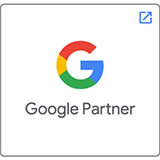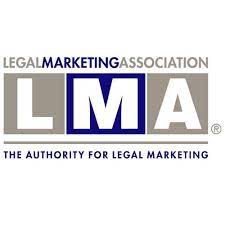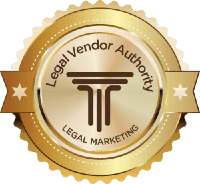New York Advertising Rules for Lawyer: A Trench Fight Instead of Rising Up to Lead
Lawyers are at it again making more rules. Thankfully, they are only making rules about their own profession. The great state of New York has added their two bits to limit evil lawyer advertisements.
To give you a sample of the coming trend, here is one of the new rules. A lawyer may not “depict the use of a courtroom or courthouse.”” I guess we are going to have all lawyers in a grass meadow now, playing on harps. Read more rules, theories and comments below.
. . . . .
THEORY OF LAWYER ADS
We need to improve the professionalism of lawyers. Making rules is not the answer. Yes, it is what we know how to do best, but it is not what we should be doing. Instead we should be focusing our efforts on creating a new brand and image. Fostering creativity and encouraging ideas should be our goal.
Yes, some firms will look shady if they are not provided rules to adhere to. Those same firms are still going to bend the rules and look shady no matter what. Every industry has its “crazy uncle” that you laugh at and feed under the door. However, it is always the leading companies that define the image for an industry, or in this case, a profession.
Instead of allowing firms to rise up and become that leader, we continue to handicap and bring everyone into the trenches over minutia rules.
The stated goal of the advertising rules is to insure that attorneys act in a more professional manner. The understated goal is to limit advertising, so that entrenched firms will not have to compete against start-ups with new ideas and new ways of doing business. However, limiting advertising only has negative effects.
The rules create more litigation about the rules.
Time and effort will be wasted over these rules. I have no data to back this up yet, but suffice it to say many lawyers are going to infringe these new rules. Many lawyers will complain about them (including me, though I am not directly effected), and this will all waste time. Why not instead have everyone involved offer pro bono services to the poor? Heck, why not just have them pick up trash on the side of the road; it will be more professional and help everyone. It will be a better use of time.
The rules cause lawyers to not be able to advertise professionally.
Creative ideas come from professions where there are no rules. The reason why we all laugh and respect companies such as Apple, FedEx, eBay, Ford, and Budweiser is that they can do anything in their advertisements. They hire the best ad agencies to create a brand for them. Law firms should be allowed to do the same. Lawyers have the worst respect of any profession. We could use some creative advertising to reshape this image. Instead, we get rules geared towards curbing creativity.
It creates a system whereby less information is considered better.
When is less information ever better?
. . . . .
THE RULES – WHERE THEY APPLY
Enough of my ramblings on the theory of the rules. They are going into effect in November. Read them if you practice in New York and/or have a web site in any state. Why anywhere? Because New York now claims that any:
“(m) “Computer-accessed communication” means any advertisement or solicitation that is disseminated through the use of a computer or other electronic device, including, but not limited to, web sites or pages, search engines, electronic mail, banner advertisements, popup advertisements, chat rooms, list servers, instant messaging, domain names, or other internet presences, and any attachments or links related thereto.” http://www.nycourts.gov/rules/1200-1.pdf
Moreover, they later claim that:
“A lawyer not admitted in this jurisdiction is also subject to the disciplinary authority of this state if the lawyer provides or solicits any legal services in this state.” [Emphasis Added] http://www.nycourts.gov/rules/1200-5-a.pdf
So in essence, if you have a web site and it can be viewed in New York, then you need to follow the rules.
. . . . .
THE RULES – THEY SOLVE EVERYTHING – INSTANT PROFESSIONALISM
Now that New York has claimed jurisdiction over the entire web, they want everyone to abide by their rules. All of this is pulled from http://www.nycourts.gov/rules/1200-6.pdf. The rules are in bold, my short comments are not. The rules say a lawyer’s ad may not:
(1) include an endorsement of, or testimonial about, a lawyer or law firm from a current client;
We wouldn’t want happy clients talking about their lawyer. Let’s give the public absolutely nothing to evaluate good lawyers from bad.
(2) include a paid endorsement of, or testimonial about, a lawyer or law firm;
This one seems fine, as paying for endorsements is always a bit shady.
(3) include the voice or image of a non-attorney spokesperson that is recognizable to the public other than the voice or image of a former client as permitted under subdivisions (e)(3) and (f) of this section;
We wouldn’t want to create actual good television ads. You know what, we should make the presidents of Apple, Ford, Nike, eBay do all their voiceovers. They will look sharp, creative and compelling. No one trusts and respects those companies anyways, so let’s go in the polar opposite direction of what they are doing.
(4) include the portrayal of a judge, the portrayal of a lawyer by a non-lawyer, the portrayal of a law firm as a fictitious entity, the use of a fictitious name to refer to lawyers not associated together in a law firm, or otherwise imply that lawyers are associated in a law firm if that is not the case;
This is just plain silly and worded badly. Why not just say, “Only Lawyers of the firm can appear in the advertisement.” Again, no other profession or industry requires this.
(5) depict the use of a courtroom or courthouse;
I guess we are going to have all lawyers in a grass meadow now, playing on harps. WTF? Seriously, WTF? Sorry but someone needs to call out the committee who drafted these rules using some abrasive language. Lawyers go to court. Lawyers work in courtrooms. Why would you not put them in their natural environment?
(6) include a portrayal of a client by a nonclient or the reenactment of any events or scenes or pictures or persons that are not actual or authentic;
This one is good, but it is already covered by the fact you cannot do anything misleading.
(7) be made to resemble legal documents;
Again, this is already covered by the fact you cannot do anything misleading.
(8) utilize a nickname, moniker, motto or trade name that implies an ability to obtain results in a matter.
If someone comes up with a creative name for their firm, then good for them.
(e) Absent compliance with subdivision (f) of this section, an advertisement or solicitation may not contain the following:
1. statements that are reasonably likely to create an expectation about results the lawyer can achieve;
Again, we would not want anyone to evaluate lawyers.
2. statements that compare the lawyer’s services with the services of other lawyers;
We wouldn’t want any competition. Competition is bad. Why does the committee hate America, competition, and freedom?
3. testimonials or endorsements of former clients; or
Again, again, we would not want any way to evaluate one lawyer from another.
. . . . .
THE DISCLAIMERS – THEY ALSO SOLVE EVERYTHING
As we all know, disclaimers solve everything. The new rules go on to make sure that all communications need to have the following. Note that these are paraphrased, but you can bet that all websites will now need to have this silly language on the home page. That will make the web sites look great and professional with all these footers!
“Prior results cannot and do not guarantee or predict a similar outcome with respect to any future matter, including yours, in which a lawyer or law firm may be retained.”
Television or radio advertisements, or recorded solicitations, shall be preceded or followed by a spoken statement that the advertisement or solicitation contains “an advertisement for legal services.”
“Attorney Advertising” on the first page.
Any packaging utilized to transmit the advertisement or solicitation shall be labeled “Attorney Advertising” in red ink. If the communication is in the form of a self-mailing brochure or pamphlet, the words “Attorney Advertising” shall appear in red ink on the address panel of the brochure or pamphlet. In the case of electronic mail, the subject line shall contain the notation “ATTORNEY ADVERTISING”.
You will also need to not do the following:(i) A lawyer or law firm shall not utilize:
1. a pop-up advertisement in connection with computer-accessed communications;
At least they didn’t ban pay-per-click advertisements and search engine optimization. Most likely, they simply did not know about the effectiveness of them.
2. meta tags or other hidden computer codes that, if displayed, would violate a disciplinary rule.
This is fine too. Meta tags are practically worthless now. Technically the Title Tag (which is the most important tag on a web site), is NOT a meta tag. While the Title Tag might fall under the category of hidden computer code, I would argue that it might not. So again this just shows that the committee who drafted these rules is fully abreast of the technology.
(j) All advertisements or solicitations shall include the name, office address and telephone number of the lawyer or law firm whose services are being offered.
You should already have your office address on every page of the web site.
(k) All computer-accessed communications must disclose, in addition to the information required by subdivision (j) of this section, all jurisdictions in which the lawyer or members of the law firm are licensed to practice law and all bona fide office locations of the lawyer or law firm.
You should already put where you are located on every page.
(l) Any words or statements required by this rule to appear in an advertisement or solicitation must be clearly legible and capable of being read by the average person, if written, and intelligible if spoken aloud.
Sounds fine.
. . . . .
RECORDS, PAPER & THE LOVE OF LAWYERS
Lawyers love paper. So it is typical that they want electronic communications stored on paper. You must now also keep a printed copy of your web site on hand for one year (printed ads for three years). Again, this just shows the ignorance of the committee. Either that or they are tree-haters. Most good web sites are updated daily. Some web sites are updated every minute with news and events. The volume of paper that this will create will be staggering. Moreover, not a single web site prints exactly as it appears on the web. If they really wanted to accomplish their goal, they would allow for the web site to be burned to a CD or backed up nightly in a database. It would be much easier and more useful.
. . . . .
YOUR DOMAIN – OUR SHOULD I SAY YOUR NAME
Yes, you can still have a domain. However, they are really trying to limit the firms to only using their firm name. This rule is ambiguous as it does not define whether you can use part of your name, hyphenated names, or an acronym. Moreover, what qualifies as practicing law through your web site? If your domain name does not have your firm name, then you must make your logo the largest type size on the web site AND you cannot engage in the practice of law using the domain. See http://www.nycourts.gov/rules/1200-7.pdf
. . . . .
PART VI – OTHER RULES
Moving on, computers, the internet and web sites are also considered solicitations. So you must abide by those rules as well. Yes, only in the legal world is there a difference between an advertisement and a solicitation. There are also some more rules to stop personal injury lawyers from making a living. You cannot also contact victims within 30 days of their accident. There are some other rule changes in this area, but mostly minor. See http://www.nycourts.gov/rules/1200-8.pdf and http://www.nycourts.gov/rules/1200-41-a.pdf
. . . . .
WRAP UP
We need to improve the professionalism of lawyers. Making rules is not the answer. Yes, it is what we know how to do best, but it is not what we should be doing. Instead we should be focusing our efforts on creating a new brand and image. Fostering creativity and encouraging ideas should be our goal.
Yes, some firms will look shady if they are not provided rules to adhere to. Those same firms are still going to bend the rules and look shady no matter what. Every industry has its “crazy uncle” that you laugh at and feed under the door. However, it is always the leading companies that define the image for an industry, or in this case, a profession.
Instead of allowing firms to rise up and become that leader, we continue to handicap and bring everyone into the trenches over minutia rules.







